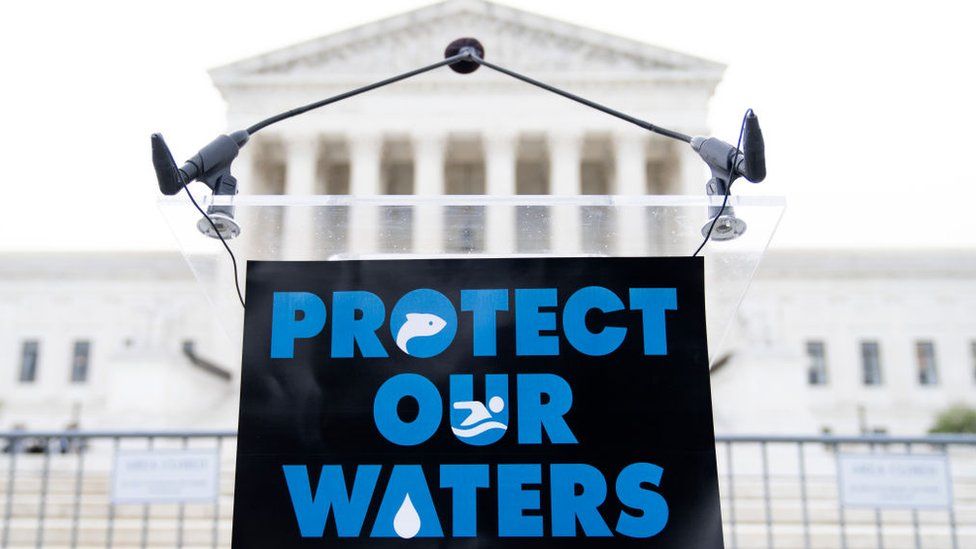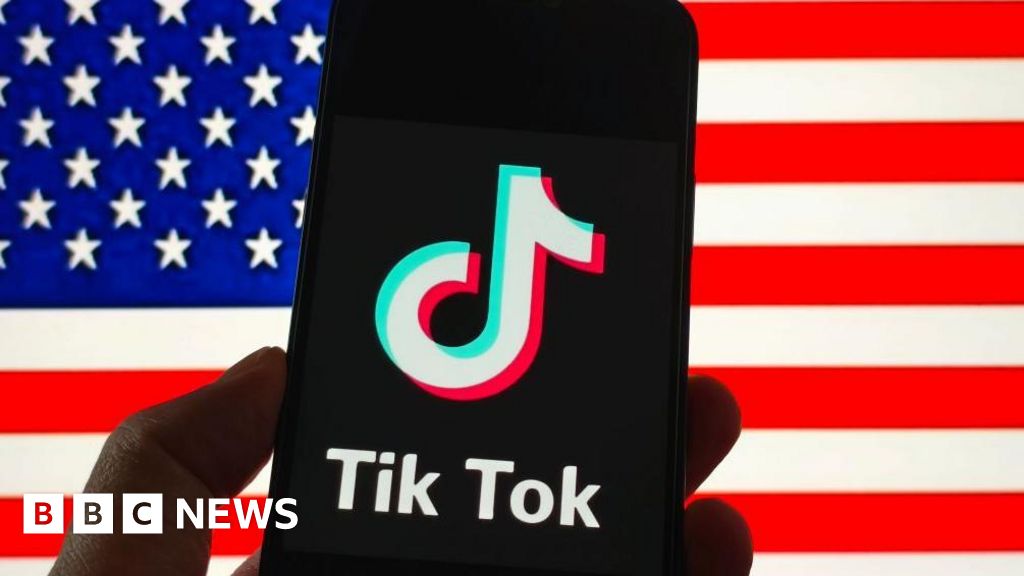ARTICLE AD BOX
 Image source, Getty Images
Image source, Getty Images
The Supreme Court decided to limit the powers of the Environmental Protection Agency on Thursday
By Kayla Epstein
BBC News, New York
The US Supreme Court curtailed the federal government's authority to protect its wetlands from pollution in a decision on Thursday.
The court ruled only those wetlands with a continuous surface connection to larger streams, lakes and rivers would come under federal protections.
The Environmental Protection Agency has expressed disappointment at the ruling.
It is the second case in two years where the court limited the EPA's ability to regulate pollution.
The Supreme Court decision "erodes longstanding clean water protections", said EPA administrator Michael Regan.
Wetland is an area of land whose soil is saturated with moisture either permanently or seasonally.
Central to the case is the reach of the Clean Water Act of 1972 that allows the government to regulate "waters of the United States" - and gives the EPA and US Army power to define the term in regulations.
But which wetlands qualify as "waters of the United States" has been subject to some debate and past court cases.
In 2006, the Supreme Court ruled that wetlands with a "significant nexus" to regulated waters -- which include oceans and many rivers and lakes -- were protected under the Clean Water Act.
On Thursday, the court decided that rule no longer applies, and said EPA's interpretation of its powers went too far.
The case, Sackett vs EPA, was brought by a couple in Idaho who were told they needed a permit to fill in a portion of their property that the government considered wetlands.
Lawyers for the couple argued that the government encroached unjustly on their property rights and the Clean Water Act did not apply to their land.
All of the justices agreed that the wetlands on the couple's property were not subject to regulation under the Clean Water Act.
But the justices split 5-4 in the reasoning behind the ruling. The majority decided that the Clean Water Act did not apply to wetlands that do not have "continuous surface connection" to bigger, regulated bodies of water.
Conservative Justice Samuel Alito said that that only wetlands with "continuous surface connection to bodies that are 'waters of the United States' in their own right, so that they are 'indistinguishable' from those waters," would qualify.
"The Court's ruling returns the scope of the Clean Water Act to its original and proper limits," said Damien Schiff, the attorney who argued the case on behalf of the Idaho couple, Chantell and Mike Sackett.
"Today's ruling is a profound win for property rights and the constitutional separation of powers," he said.
Environmental regulators and advocates have expressed outrage at the decision, saying it posed potential risks to safe drinking water and America's natural resources. The environmental law group Earthjustice warned that as many as "118 million acres" would be affected.
Ben Jealous, executive director of the Sierra Club, said in a statement that the Court had "sided with polluters."
Justice Brett Kavanaugh, a conservative appointed by Donald Trump, joined the court's three liberal justices in opposing the decision.
"By narrowing the act's coverage of wetlands to only adjoining wetlands, the court's new test will leave some long-regulated adjacent wetlands no longer covered by the Clean Water Act, with significant repercussions for water quality and flood control throughout the United States," he wrote in a dissent.

 1 year ago
27
1 year ago
27








 English (US) ·
English (US) ·